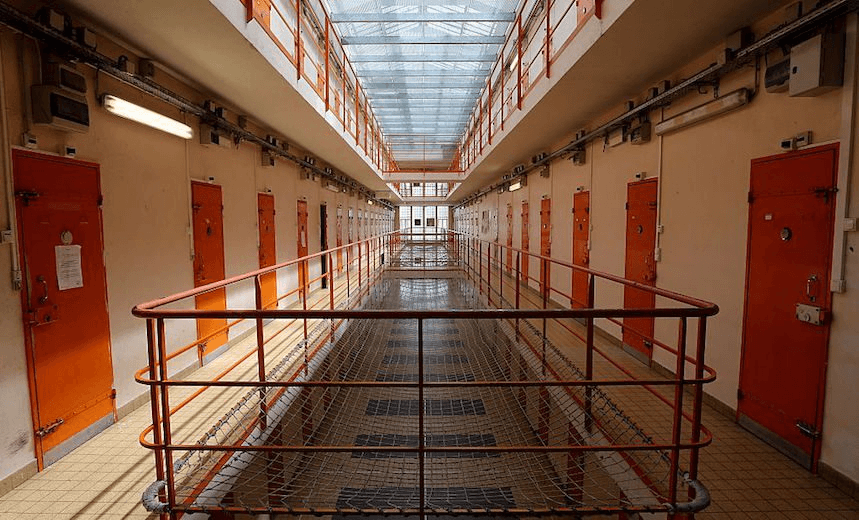After a brief flurry of media interest, the revelation that prisoners had been tied to their beds for up to 16 hours a day has quickly faded from the public consciousness. But that’s par for the course when prison inmates are routinely dehumanised, says Roger Brooking.
Three weeks ago, the Ombudsman Peter Boshier issued a report which said the Corrections Department had been tying difficult prisoners to their beds for up to 16 hours a day. The report described one case like this:
“The man spent almost 600 hours restrained on the bed and in some cases was not released in order to go to the toilet. His limbs were not moved during the periods of restraint… The inmate also did not receive his medication upon being imprisoned… Corrections also failed to seek medical approval to secure the prisoner to the tie-down bed 36 out of 37 times.”
The five prisoners subject to this inhumane treatment were deemed to be at serious risk of self-harm. In the absence of adequate mental health treatment in prison, Corrections chief executive Ray Smith justified these extreme measures as the only way to keep these inmates alive.
Peter Boshier identified four different prisons where prisoners were being tied to beds: in Auckland, Christchurch, Otago and Waikeria. He said the way these prisoners were treated was so cruel, the Department was in breach of the Crimes of Torture Act 1989.
That’s a pretty serious allegation. Section 3 of this Act says that anyone who commits an act of torture in New Zealand can be sent to prison for up to 14 years. If it’s that serious an offence, you’d think the media would be up in arms, the police would take immediate action and the prison managers who allowed this mistreatment to take place would be prosecuted.
But that didn’t happen. Ray Smith assured the public that the matters were “fully investigated and appropriate action taken”. Really? One prison officer was fired (for assaulting a prisoner who was already tied down). No one was prosecuted for torture and the media lost interest in the story two days later. Why? Because the victims of these crimes are prisoners; and for the last 20 years or so, with the willing help of the media, the Sensible Sentencing Trust and most MPs have successfully depicted prisoners as something less than human.
As such, they don’t seem to have any rights. Well that’s certainly what Labour MP Stuart Nash seems to think. In response to a High Court ruling that convicted murderer Phillip John Smith had the right to wear a toupee in prison, Nash posted a message on Facebook claiming “He has no rights!!” He went on to suggest other inmates should scalp Mr Smith. He’s since deleted his post, but this is what he wrote:
“Scalping is associated with American Indians but it was actually started by Europeans. Perhaps someone in jail who isn’t too fond of monsters who destroy little boys’ lives by stealing their innocence in the worst way possible could reintroduce Mr Smith to the practice.”
Posting an incitement to violence on Facebook is a potential breach of section 22 of the Harmful Digital Communication Act which states:
“A person commits an offence if the person posts a digital communication with the intention that it cause harm to a victim [ or] posting the communication would cause harm to an ordinary reasonable person in the position of the victim.”
Will Nash be prosecuted? Of course not.
Even law professors are not immune from this rush to denigrate those in prison as less than human. In an opinion piece on the Pundit blog, Otago law professor Andrew Geddis argues that Phillip Smith does have rights, including the right to wear a toupee. But presumably in order to show he’s not a snowflake or a bleeding-heart blouse, Geddis describes Smith as “a piece of shit” – adding “most definitely” for good measure.
That may not be against the law – although one could well argue that such a “communication would cause harm to an ordinary reasonable person”. If someone texted that to a schoolboy (or girl), it would be called bullying.
Calling an adult a piece of shit online (where it lasts forever), could well cause an ordinary person hurt and distress. Sometimes this kind of abuse leads to suicide.
The thing is – prisoners in New Zealand are barely seen as people, let alone ‘ordinary’ or ‘reasonable’. You can say anything you like about them. It seems you can also do anything you like to them. You can house them in shipping containers; feed them poor quality food; lock them up for 23 hours a day; deny them access to mental health treatment when they’re suicidal; expose them to fight clubs and violence; withdraw opiate pain medication when they need it; deny them access to the dentist when they have toothache or an abscess; prevent them from voting in elections; prevent them from talking to the media – the list goes on.
Now you can even torture prison inmates and encourage them to scalp each other. Except for the Ombudsman, no one in New Zealand seems to give a shit – because according to the Sensible Sentencing Trust, Stuart Nash, and now a prominent law professor, that’s all they are.
Roger Brooking blogs about crime, justice and prison issues at Brookingblog.
The Society section is sponsored by AUT. As a contemporary university we’re focused on providing exceptional learning experiences, developing impactful research and forging strong industry partnerships. Start your university journey with us today.
